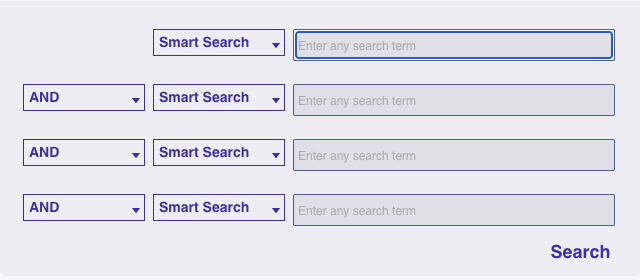Search
How helpful was this page?
Related Blog Posts
Blog Posts
-
Site-specific eBooks
created by
Jan 10, 2024
-
Builder: customize your search
created by
Nov 21, 2023
-
Items: a few things you may not know...
created by
Apr 12, 2023
-
Searching by Subject
created by
Nov 16, 2022
-
Level up your searching
created by
Sep 21, 2022
-
Using Copy Location & Copy Shelving
created by
Aug 24, 2022
-
¿Hablas español?- Filter search results by language
created by
Aug 16, 2022
-
Top 5 tips of 2021!
created by
Dec 29, 2021
-
Search smarter!—Combine search results
created by
Oct 13, 2021
-
New Inventory–Using Search Strings
created by
Sep 29, 2021
Search Bar
Because patrons have varying levels of reading and writing comprehension, the Alexandria Search interface allows you to search your collection (or remote collections for which they have access) using a number of different search types; these can be easily changed using the Search Type drop-down menu located in the upper-left of the Search bar. For example, you can choose to search using Smart Search (default), Authors, Awards, Bibliographic, Call Number, Curriculum, Notes, Series, Subject, and Titles. During a search, Alexandria examines MARC information stored in each title record; for example, when you choose to search using Authors, Alexandria searches for authors in the 100 and 700 tags.
To begin, enter a search query by typing a few descriptive keywords (single words or phrases) in the Search field. When you stop typing, Alexandria will start returning the most relevant results. If you continue typing, Alexandria will keep refining the results; to broaden or restrict the search, include more or fewer terms. Patrons will typically use the Smart Search (default) search type to locate information in your collection(s). However, you can also search by Authors, Awards, Bibliographic, Call Number, Curriculum, Notes, Series, Subjects, and Titles; information on additional search types is shown below.
Alternately, for those who can't read or write fluently and find text-based searches difficult (or impossible) to use, click one of the large, graphic elements in the Explore pane to perform a search. See Explore Panes for more information.
The Search bar is primarily used to enter search queries by typing keywords into the Search field. When the Search field is not empty, a Clear Search icon will appear to the right of the field; clicking this icon will clear your search terms and also any filters that may have been applied, including your current Results List—leaving you with a blank slate for a new search.
The drop-down menus and icons that cross the top of the Search bar allow you to modify or enhance your search capabilities both pre- and post-search.
Search Type
Use this drop-down menu to select the type of search you'd like to perform.
- Smart Search (default). The Smart Search is a relevancy-based search with the most likely results returned first; “exact” takes priority over “begins with” matches and bias is shown towards titles, authors, series, and subjects before all other keywords. In fact, results with exact title and author matches are always shown first, so the results retrieved are more relevant than those found using a pure keyword search.
- Authors. You can search the selected library catalog for books with a priority set to “exact” author keywords.
- Awards. You can search the selected library catalog for titles which have won a specific Award, for example Caldecott Honor.
- Bibliographic. You can search the selected library by all titles designated as Bibliographic.
- CallNumber. Search the selected library catalog by call number. Although complete or partial call numbers may be entered, try to start with the first alphanumeric character and include all punctuation and spaces (case does not matter).
- Curriculum. Search the selected library catalog for titles that are listed as Curriculum.
- Notes. You can search the selected library catalog, within Notes made for individual title.
- Series. You can search the selected library catalog for books with a priority set to “exact” series keywords.
- Subjects. If you do not have an exact title or author in mind, use this search type to find materials on a particular topic based on subject keywords.
- Titles. You can search the selected library catalog for books with a priority set to “exact” titles.
- All Mediums. Choices built from Authority Control, this limits the search results to a specified Medium. Uses Medium Alias names so it’s easier for patrons to understand. Default is All Mediums. NOTE: This feature is not available unless Authority Control is enabled.
- Genre. Choices built from Authority Control, this limits the search results to a specified Genre; default is All Genres. NOTE: This feature is not available unless Authority Control is enabled.
Study Programs
These filters are useful to narrow searches in your collection to items that have been assigned reading levels or classified as part of a study program such as Accelerated Reader, Reading Counts, Fountas and Pinnell, Guided Reading or Lexile. This way, patrons can search your collection based on the study program name, reading levels, points, and interest code. Keep in mind that the name of the study program contained in the 521_b or 526_a tag of an item record must follow established standards (e.g. “Fountas & Pinnell” is incorrect and must be correctly named “Fountas and Pinnell”) in order for reading level filters to show meaningful results.
- Lexile. This filter narrows your search results to items with a specified lexile score between zero and 2000 (i.e. information kept within the 521 tag); for more information about these fields, please review the Lexiles section.
- Interest Level. This filter limits your search results to items with interest codes (i.e. the 521 tag).
- Reading Level. This filter limits your results to items within a specified reading level range (i.e. 526 tags). If you provide only one value, only that value will be searched.
- Point Count. This filter limits your results to items within a specified point count range.
Medium
This filter allows a user to select from a list of Mediums such as Book on CD, Sound Recording, Magazine, etc. Mediums. This list is edited through Authority Control.
Genre
This filter allows users to select from a list of Genres. The default selection is All Genres.
Tags
This drop-down menu can be populated with ‘Tagged’ terminology (e.g. authors, title, etc) from the items in your Results List. When one of your tags is selected from this menu, a new search—using that tagged term—is performed. The Tags menu can store up to twenty-five (25) selections before dropping the last from the list. Further, tags are only available for the current session and are cleared when the browser is reset or refreshed. For more information on tagged information from your brief or expanded Results List, please click here.
Step-by-Step Instructions
Perform a Search
- First, if you're part of a Centralized Catalog, use the Site Selection drop-down menu to specify whether you'd like to search the current local or entire union collection.
- Next, use the Search Type drop-down menu located above the Search field to select the type of search you wish to perform. We typically recommend the Smart Search (default) search type to locate information in your collection(s). However, you may also choose to search by Authors, Call Number, Series, Subjects, and Titles.
- If required, you can use the Study Programs filters to select materials with a study program tag (e.g. Lexile, Interest Level, Reading Level, or Point Count).
- You may be asked to enter a minimum and/or maximum Reading Level; if you enter only one value, only that value will be searched.
- You may be asked to provide a Interest Level.
- You may be asked to enter a minimum and/or maximum Points count; only items within that point count range will be chosen.
- Enter a search query by typing a few descriptive keywords (single words or phrases) in the Search field via keyboard or “copy and paste”. Alternately, for those who can't read or write fluently and find text-based searches difficult (or impossible) to use, click one of the large, graphic elements in the Explore pane to perform a search.
- As you type, Alexandria will start returning the most relevant results immediately. If you continue typing, Alexandria will keep refining the results; to broaden or restrict the search, include more or fewer terms. It is recommended that you start with the most general search terms first and then more specific search terms if you can't locate your item.
- For information on how to handle post-filtering and manage your search results, see Step-by-Step: Refining Your Search Results.


